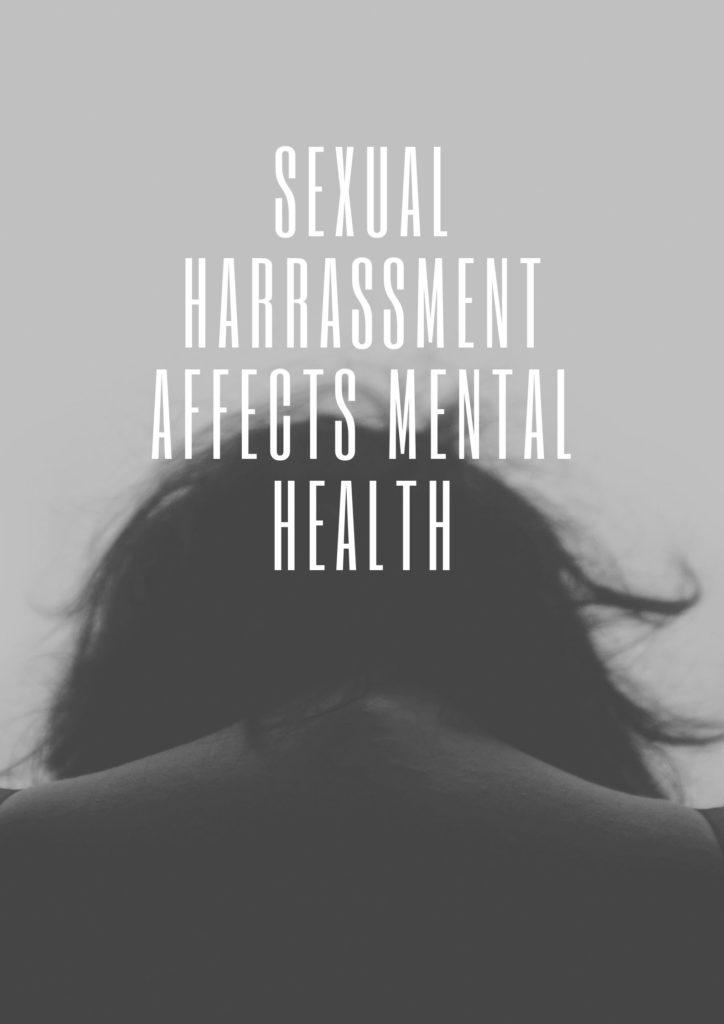Women are faced with many challenges at the workplace. They get fewer and lesser opportunities in leadership and have it harder than men in getting promotions or pay rises. In addition there is physical, mental, and sexual harassment ; which is very rampant across the world.
While men can also be victims of sexual harassment especially from female bosses, women are more affected than men.The perception of women as weak and vulnerable tends to predispose them to many cases of harassment at the workplace. Moms are harassed sexually to get employed, get promoted, get a pay rise, or any other work-related development.
As a result, victims are forced to work under a strenuous work environment that affects their work performance, social life and psychological health, leading to poor life quality and deteriorating health.
You can identify sexual harassment as any unwelcome sexual advances, requests for sexual favors, as well as verbal/ physical conduct of a sexual nature. It is illegal and you have options on how to address it. You can go internal retribution with the HR or pursue the matter legally, especially if it is your boss involved.
Is Sexual Harassment Illegal?
Major developments in labor and law now classify sexual harassment as an offense.The law prohibits employers from discriminating against individuals in hiring, firing, and other terms and conditions of employment, like promotions, raises, and other job opportunities because of their sex.
In every country, there are rules and regulations protecting employees from any form of harassment including sexual harassment. For instance, Title VII of the Civil Rights Act of 1964 recognizes sexual harassment as a form of sex discrimination.
Legally, sexual harassment is an offense especially when agreeing to the conduct is a condition of employment, whereby rejecting the conduct is used in making employment decisions, or if the conduct is intended to unreasonably interfere with the individual’s work performance or the conduct creates an intimidating, hostile, or offensive working environment.
Therefore you as a woman have varying options of how they can deal with and stop sexual harassment at the workplace. You have a right to fair treatment at the workplace and you should not entertain any sexual harassment to gain favor.
How To Identify Sexual Harassment At Work
Once you are aware of what kind of behaviors are regarded as sexual harassment, you will easily identify and spot sexual harassment should it happen to you or your colleague. You become more educated, ready, and equipped in stopping such harassment.
The person involved in the harassment can be the supervisor, a supervisor in another department, a colleague, or someone who is not an employee of the employer, such as a client or customer. Also, the victim could be an employee who is indirectly but negatively affected by the offensive conduct.
Sexual harassment may vary in degree and frequency among other factors but generally, sexual harassment is unwelcome sexual advances, requests for sexual favors, as well as verbal/ physical conduct of a sexual nature.
Some examples or forms of sexual harassment at work against women include;
- Unwelcome sexual advances/ sexual favors- very common
- Direct/indirect threats/bribes for sexual activity
- Sexual innuendos and comments- mostly against young women
- Sexually suggestive jokes
- Unwelcome touching/brushing against a person -mostly against young women
- Displays of explicit material
- Attempted or completed sexual assault
Read: How to Deal with Pregnancy Discrimination at Work
Gathering and Documenting Evidence
Having proof that you are being harassed at work is important. Keep records of what you can of instances of sexual harassment such as call records & logs, text messages, photos, videos, or emails containing the offensive content/behavior.
Some forms of harassment such as touching, and jokes among others may be hard to obtain proof but ensure you can keep record of the day, time, place, and any people around if possible. These records will help you build a case with HR or in court thereafter.
Also if your supervisor/employer demotes you, fires you, or cuts your salary for denying a sexual advance, keep a record of any official letter detailing the reasons for this action.
Implications of Sexual Harassment
Many employers and female employees underestimate the negative implications of sexual harassment and what it means for the victims.
- Psychological suffering which includes humiliation, reduced motivation, and loss of self-esteem among others.
- Behavioral changes such as isolation, and deterioration of relationships.
- Stress-related physical and mental illnesses such as drug and alcohol abuse.
- In extreme cases, the women forego career opportunities, leave employment or commit suicide as a result of these experiences. The society then bears the unemployment welfare benefits.
- Society has to bear the long-term rehabilitation costs for the reintegration of the female victims after they seek trauma treatment.
Hence it is very important that working women practice self care to avoid suffering to this level.
Read: Selfcare for Working Mums

How to Deal with Sexual Harassment at Work
After going through the above steps and confirming that you or your colleague is a victim of sexual harassment, it is time to take action. It is still shocking that most women who face sexual harassment at the workplace take no action against the offense and suffer stoically.
Remember that sexual harassment is an offense under the company policies and the law and hence you have options for retribution. You should not agree to any sexual misconduct or harassment to gain favor with your boss or supervisor.
Help yourself and other women in fighting harassment by saying no and taking action against the perpetrator by taking the options described below.

A. Internal Retribution- Easy Option
One way of dealing with sexual harassment at the workplace is through your office. Employers are required to have policies and codes of conduct in place that protect women from sexual harassment and offer an avenue for solving and remedying such cases.
Read your company policies regarding making and reporting harassment cases at your workplace. Look out for notices addressing the violations and advising on the right to be free of discrimination, harassment, and retaliation.
Once you have all the documents and records in place, you can report the matter to HR. Ensure you retain a copy of this as well. Hopeful the case will be solved internally by the HR office. Certain disciplinary actions may be taken against the perpetrator and you also can be remedied in a variety of ways.
The action will be guided by your company policies as well as your country’s anti-harassment law. The employer is obligated to take corrective or preventive actions concerning the source of the harassment and minimize the chance of it happening again, as well as discontinuing the specific discriminatory practices involved in the case.
In some cases, however, your case may not be settled satisfactorily by your HR office, especially if it involves the boss or another high-ranking executive. When the perpetrator of the sexual harassment is the direct supervisor or the boss, the case may be difficult and more complicated than if it was a co-worker. It is highly unlikely that your case will be handled internally at your workplace considering the seniority of the people involved.
In such a case, two options are highly recommended.
- Quit Your Job – If your boss is sexually harassing you, it is highly unlikely that this will end well for you if your try pursuing the matter internally. At his disposal, the boss can demote, cut your salary or simply fire you in an attempt to stop him and his advances. As such the options are to leave the workplace and change employers.
- Pursue The Matter Legally- Additionally, you have the option of pursuing the matter legally. You can consult a lawyer on your case and if you have enough evidence then you can prove sexual harassment against your boss. You will then be able to get retribution and also help other women undergoing sexual harassment at your workplace.
B. Involve a Lawyer -Best Alternative
Involving a lawyer will play a major role in your case if you are being sexually harassed at work. If your case is not addressed or solved satisfactorily by the internal HR office, you have a legal option. Also, you may choose this option given the gravity of your harassment case and the implications on the parties involved.
In such cases pursue your case legally with the help of a discrimination lawyer. Consult a lawyer with details of your case and ask for legal advice. Your evidence and documentation will come in very handy at this time.
Read : How To Handle Pregnancy Discrimination At The Workplace
Possible Remedies for Sexual Harassment Victims
After a successful case whether internally with the HR office or through the court, you as a victim of sexual harassment will get retribution in several ways.
You stand to benefit with:
- Getting back pay
- Being hired
- Getting promoted
- Having a reinstatement
- Get compensation for anticipated future losses- happens to those who have lost their jobs
- Get compensatory damages for emotional pain and suffering
- Get punitive damages meant to punish the employer- can very harsh on the perpetrator
- Payment for attorney fees, expert witness fees, court costs among others-
- Other actions to make the individual “whole”



